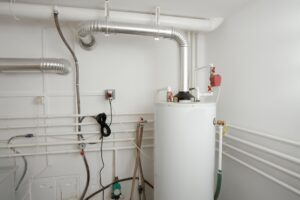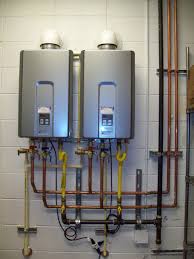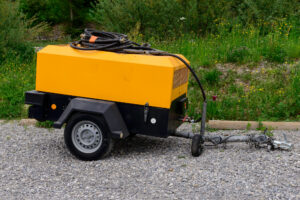Water Heaters Are A Great Convenience
Water heaters are great and convenient to have because the heated water they generate can be used not just for taking relaxing hot showers, but also for the dishwasher and washing machine. This is the very reason why many households have them and why they are considered as indispensable household appliances. The problem with water heaters is that they are not lifetime investments. Even if you properly and regularly maintain your unit, the most years you’ll see with your unit will be 20 years, if you are lucky. This is because most water heater units usually last only 12-15 years which means they need to be replaced after that time period. Then again, if you do not regularly maintain your water heater unit, you’ll be looking at a maximum of 10 years or less.
When replacing your old water heater with a new one, you may need to think about savings. With that, you may need to think about choosing a new water heating system that will meet your daily heated water requirements, yet still, be energy efficient enough to provide you with savings on your utility bills. This is why there are certain selection criteria for choosing a water heater. The criteria are Fuel Type, Size, Energy Efficiency, and Cost.
Fuel Type – when choosing a new heater, it is very important that you consider the availability of the energy source or fuel type you will be using for the unit. This is because you wouldn’t want to choose a propane-powered unit when there are no propane fuel lines in your area. Another important aspect of carefully considering the fuel type for your water heating unit is that the energy or fuel you use in heating will have great effects on its size and energy efficiency, not to mention the annual operating cost. The list below shows the fuel types or energy sources for water heaters.
Electricity – this is the most widely available energy source to power water heaters. This type of energy source is available for storage, tankless, and heat pump water heaters.
Propane – this fuel type is available in many areas in the U.S. There are storage and tankless water heaters that use this as their fuel source.
Natural Gas – this fuel type is also available in many parts of the U.S. There are storage, tankless, and indirect water heaters that use this as their fuel source.
Solar Energy – this energy source is available almost everywhere as all you need is to have direct access to sunlight. The only problem with units that use solar energy is that the initial cost of the unit is pricey.
Fuel Oil – this is available in some parts of the U.S. and is used mostly for storage tank water heaters.
Geothermal Energy – this is available almost throughout the U.S., especially for those who use a geothermal heat pump system.
If there is more than one available type of fuel source in your area, then it would be a good idea, whether you are building a new home or simply replacing the old unit, to compare fuel cost. Once you get the most cost-effective type of fuel source for your water heating unit, then you are likely to save more money rather than choosing impulsively.
The type of unit you buy is also essential as this will also have some effects on your overall water heating cost. Two similar storage tank water heaters that use electricity, but of different make, price, insulation, and rating will likely yield different electricity consumption. This makes it equally important to choose the right type of water heating unit.
Size – having a good-sized water heater unit will be able to meet your household’s daily hot water needs without overworking it. This makes it important to get a water heater for your household that is the right size. This criterion goes whether you are getting a storage-tank water heater, a tankless water heater, or a solar water heater unit.
Storage Water Heater Size – in order to correctly estimate the size of the storage water heater you need for your household, you need to take into consideration two things – volume capacity and recovery rate. If there are two persons in a household, a 30-40 gallon will easily be able to accommodate their hot water usage. For three to four persons in a household, they may need to get a 40-50 gallon tank. For a household with more than 5 individuals, an 80-gallon tank is recommended. Recovery rate is another thing to consider in a storage-tank water heater. This is displayed as FHR (First Hour Rating). The FHR rating shows how much hot water in gallons the unit can heat per hour, starting with a full tank of heated water. FHR usually depends on tank capacity, fuel source, and size of the heating element.
Tankless Water Heater Size – these water heating units are rated based on how much they can elevate the temperature of the water on a given flow rate. This makes it very important to know the usage of your household at given peak usage. In order to properly assess your water heating requirements, you need to list the number of taps that uses hot water at any given time. This would include the number of hot shower tap, including the dish and clothes washer taps. At peak usage, try to estimate how many of these are running simultaneously and add up their flow rate. This then would be the desired flow rate that your tankless water heater needs to heat. For example, each tap has a flow rate of 2.5 gallons per minute and running two taps simultaneously will mean you need to have a whole-house tankless water heater that can heat at least 5 gallons per minute.
Solar Water Heater Size – to get the right size for your solar water heater, you need to determine the usage of the household. This would in turn determine the total solar collector area as well as the storage volume for your system. There are contractors who use cheat sheets and computer programs to help them determine your system requirement based on your total household requirement.









